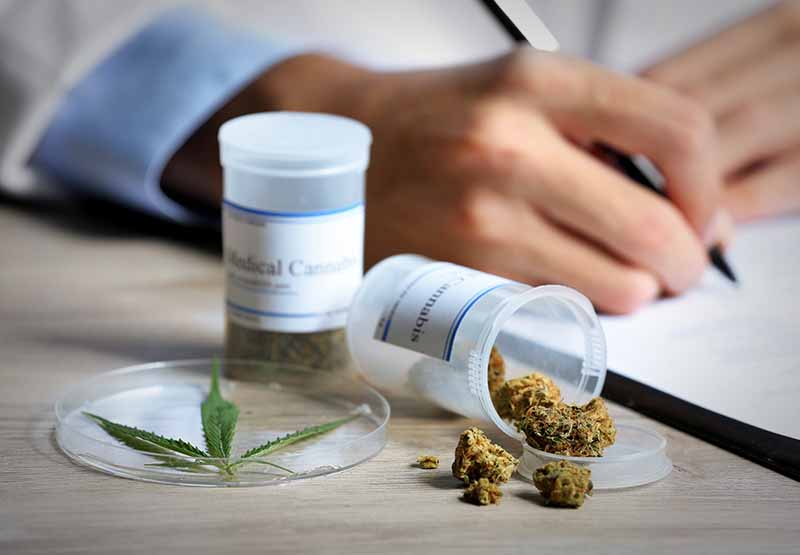As more states legalize the recreational use of cannabis, some medical marijuana card holders might wonder if it still makes sense to hold on to and renew their cards. And many over the age of 21 in recreational-use states may wonder if they should even bother getting a medical marijuana (MMJ) card.
If either of these apply to you, we’re going to cover a few things to help you decide. First, let’s start by explaining how to get your medical marijuana card – if you don’t already have one.
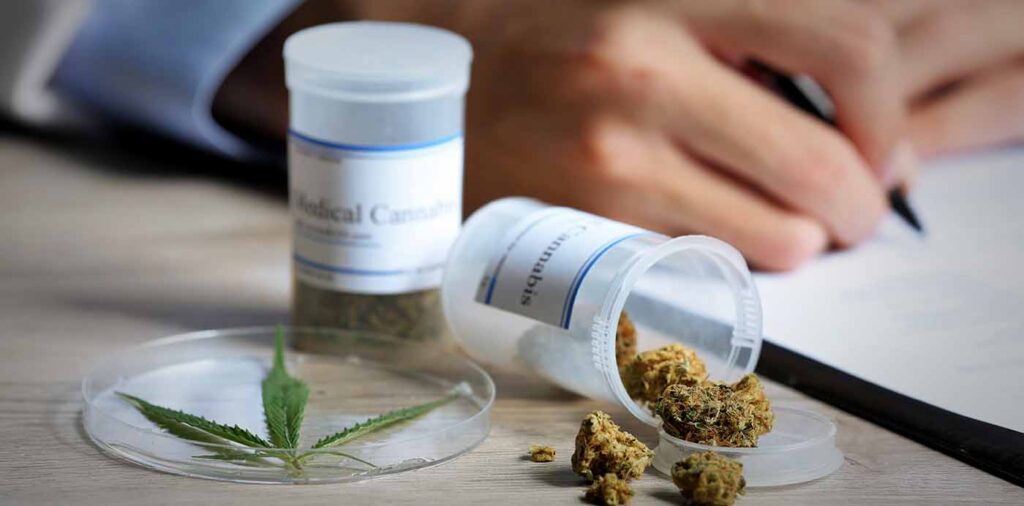
How to Get a Medical Marijuanas Card
The process for obtaining your medical marijuana card will vary according to the laws of the state where you live. With that being said, the first step in the process for most involves scheduling a consultation with a physician.
For Bloom’s patients and customers in Ohio, Maryland, and Missouri, we’re trying to make the process of getting your MMJ card a bit easier. If you live in Missouri, all you have to do to get started is to enter your information into the form on our get a medical marijuana card card page.
Otherwise, if you live in Ohio or Maryland, we’ve included some links at the bottom of this page, to help you get the application process started.
Benefits of a Medical Marijuanas Card
The benefits of obtaining a medical marijuana card can vary depending on the state you’re in. However, in places where medical marijuana is legal, there are some potential benefits that could make getting your MMJ card worth the effort.
What Does a Medical Marijuanas Card Do?
With a medical marijuana card, you can legally purchase and possess cannabis for medical purposes in states where medical cannabis is legal. This protection helps you avoid legal consequences and provides peace of mind when using medical marijuana.
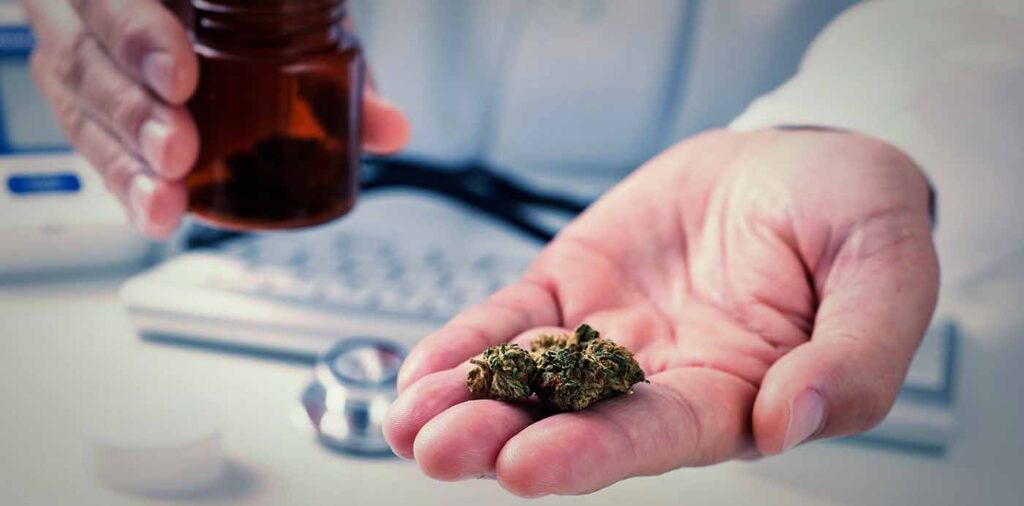
9 Benefits of Getting a Medical Marijuana Card:
Getting your MMJ card could provide a range of potential benefits that aren’t available to Recreational customers, including helping you:
1. Stay on the Right Side of the Law: if you live in a state where the recreational use of cannabis has not been legalized , then your MMJ card could help you avoid unnecessary hassles and charges simply because you had a little bit of cannabis on you.
2. Save on Taxes: medical marijuana tends to be taxed at a lower rate than recreational marijuana. Not only that, but recreational cannabis can be hit with multiple taxes – like county and state. Over the long term, the reduced taxes on Medical Marijuana could add up to significant savings for medical patients.
3. Enjoy a Wider Selection of Products: Medical marijuana dispensaries often offer a broader selection of cannabis products compared to recreational dispensaries – including products with different CBD-to-THC ratios, specific strains tailored to certain conditions, and alternative methods of consumption like edibles and tinctures.
4. Increased Purchase Limits: MMJ cardholders may have higher purchase limits compared to recreational users. This can be important for patients requiring larger quantities of cannabis for treating their chronic conditions.
5. Age Exceptions: Most states have age restrictions for purchasing recreational marijuana, but it’s possible for minors with qualifying medical conditions to get their MMJ card.
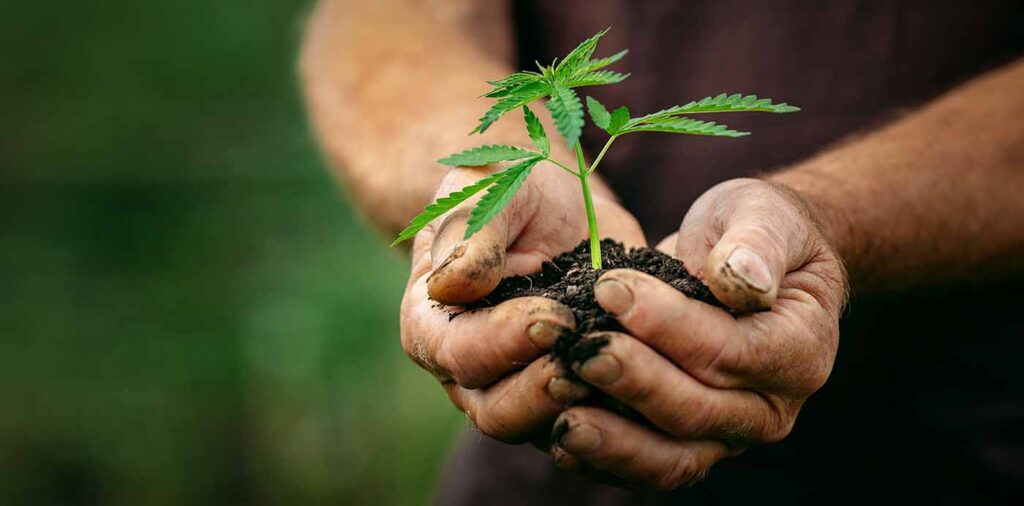
6. Grow Your Own: In some states, medical marijuana cardholders are allowed to cultivate a limited number of cannabis plants for personal use.
7. Enjoy Lower Prices: Medical marijuana cards can help reduce the overall cost of medical cannabis – since recreational cannabis can be more expensive due to extra fees and taxes. Also, dispensaries will often offer reduced prices and loyalty programs to MMJ patients.
8. Receive Guidance from A Doctor: In the process of obtaining an MMJ card, you’ll consult with a healthcare professional who can give you guidance on dosage, strain selection, and potential interactions with any medications you might be taking.
9. Reduce the Stigma: Carrying a medical marijuana card could reduce the stigma associated with cannabis use, since it documents that your use is for medical purposes.
How Much Does a Medical Marijuanas Card Cost?
The cost of obtaining a medical marijuana card will vary depending on where you live – with each state having its own fee structure. The costs associated with obtaining an MMJ card could include:
Doctor’s Consultation Fee: A consultation with a healthcare professional authorized to recommend medical cannabis can range between $50 to $200, depending on your location.
Application Fee: Many states and countries charge an application fee for processing and issuing an MMJ card. This fee can range from $20 to $200, depending on the jurisdiction.
For example, in Ohio you’ll have to pay $50 to the State of Ohio after receiving your doctor’s recommendation. In Missouri, that cost can be $28. In Maryland, the patient registration fee is $25.
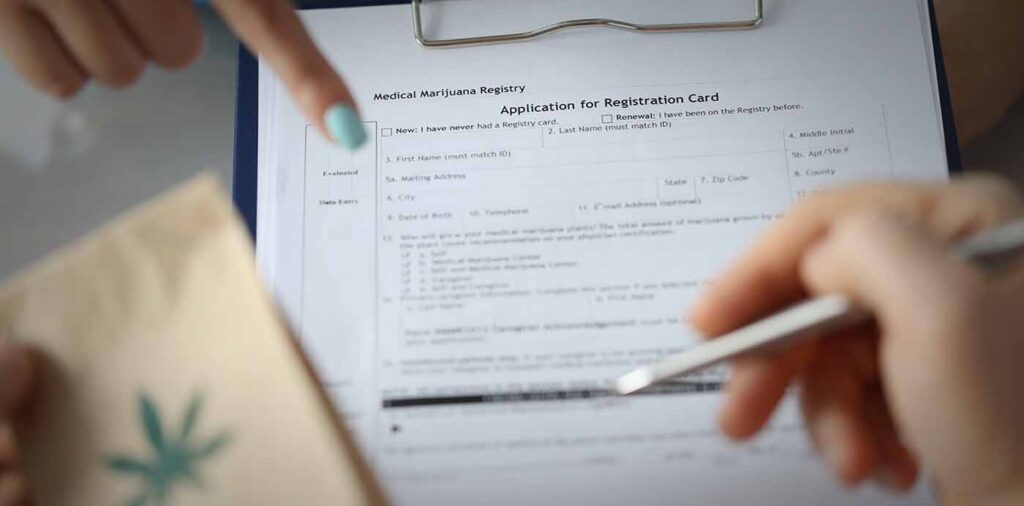
Renewal Fees: In most places, medical marijuana cards are valid for a specific period, typically one year. After that, you’ll need to renew your card, which can involve paying a renewal fee. This fee is usually similar to the initial application fee.
Additional Documentation Costs: Some states may require additional documentation, like medical records, to support your application. Getting these documents could entail additional expenses depending on your doctor’s policies.
Although it can seem like there are a lot of fees associated with getting an MMJ card, the lower taxes and reduced prices that medical patients enjoy over the long term can help to make up for the costs.
Plus, the legal protections that a medical marijuana card could provide can be priceless.
It’s important to note that the laws regarding medical marijuana can change over time. That’s why it’s important for you to research the specific requirements and costs associated with obtaining an MMJ card in your state.
How Much Could It Cost Not Having an MMJ Card?
An example of how expensive it could be to not have your medical marijuana card comes from Ohio.
Although Ohio legalized Medical Marijuana in 2016, the recreational use of cannabis is still illegal there. This is in contrast to the state Michigan – which legalized the recreational use of cannabis for adults in 2018.
As you can imagine, for some residents of the Buckeye State who live close to the border with Michigan, it can be tempting to forgo the process of getting their medical marijuana card.
Well, Ohio State Troopers are well aware of this temptation.

In a 2020 article that appeared on WLWT.com – Ohio State Trooper Sheldon Goodrum talked about the increased police presence along the border, saying:
“The fact of the matter is, it’s illegal here in Ohio so if you choose to bring these illegal substances, these narcotics, into Ohio, we’ll do everything that we can to find out who you are and take the appropriate legal action – whether that’s local, state, or federal law, and we’ll take it to the furthest extent we can.”1
In case you’re wondering, getting caught with small amounts of cannabis in Ohio – and not having an MMJ card – can result in a misdemeanor charge, a $150 fine, and a possible suspension of your driver’s license. And that’s just for first-time offenders.
Geez … I would gladly pay to get my Medical Marijuana Card in Ohio just to be able to avoid having to deal with Troopers willing to take it to the furthest extent of the law. Seems like a small price to pay for the peace of mind it could provide.
One final note: Just to be clear… you should never try to cross any state border with cannabis – even if you have an MMJ card. Since cannabis remains illegal on the Federal level, it is illegal to cross any state border with cannabis.
How Long Does It Take to Get a Medical Marijuana Card?
The length of time it takes to obtain a medical marijuana card can vary significantly. Generally, the process can take about 2-3 weeks depending on the state where you live.
With that being said the exact time it will take to get your MMJ card will vary and can depend on a number of factors, including:
Application Processing Time: can vary from a few days to several weeks. Some places have efficient systems in place and can process applications quickly, while others might have longer processing times due to high demand or bureaucratic procedures.
Doctor Availability: Getting a medical marijuana card typically requires a consultation with a healthcare professional who can evaluate your condition and recommend medical cannabis if appropriate. The time it takes to schedule and complete this consultation can vary based on the doctor’s availability and the number of patients they see.
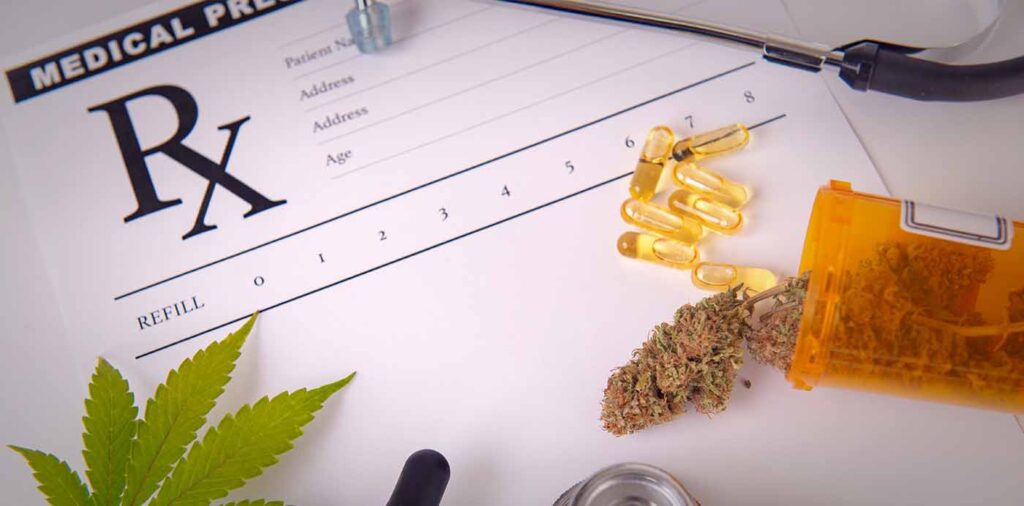
Application Review: Once your application is submitted, it will need to be reviewed by the relevant authorities to ensure you meet all the necessary criteria for obtaining a medical marijuana card. The time it takes for this review and approval process can vary depending on the workload of the agency responsible for processing applications.
Gathering Required Documents: Some jurisdictions may require specific supporting documents to accompany your application. The time it takes to gather these documents can also influence the overall processing time.
Issuance of the Card: After your application is approved, the medical marijuana card itself needs to be issued and mailed to you. The time it takes to receive the physical card can vary depending on the efficiency of the card issuance system.
In some cases, urgent medical conditions or special circumstances may allow for expedited processing of your application. However, this is not the case in all regions.
Does a Medical Marijuana Card Work In Other States?
If a state offers reciprocity that means it allows out-of-state medical marijuana cardholders to access medical cannabis in their jurisdiction. Some states have reciprocity agreements with other states and recognize and accept their out-of-state medical marijuana cards. However, the specific rules and limitations differ, so it’s essential to check the details for each reciprocating state.
Some states offer what is known as limited reciprocity. That means they allow only certain out-of-state medical marijuana cardholders to access medical cannabis. This could be based on the specific conditions covered by the out-of-state card or other criteria.
It’s important to note that the terms of reciprocity between states can change. Therefore, if you plan to use your medical marijuana card in another state, it’s important to research the laws of that state ahead of your visit.
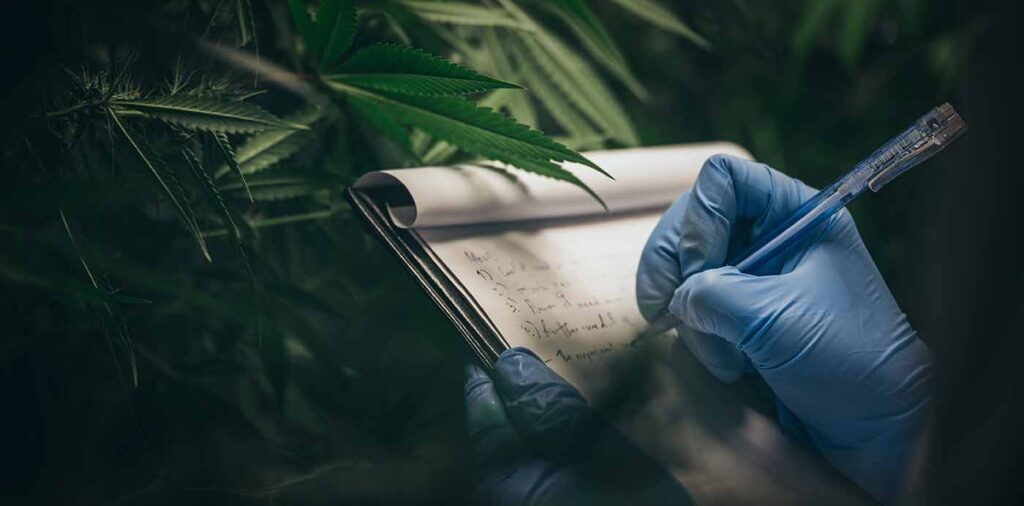
Does a Medical Marijuana Card Show Up on a Background Check?
In most cases, a medical marijuana card should not show up on a standard background check. Medical marijuana records are typically considered private health information and are subject to medical privacy laws, like the Health Insurance Portability and Accountability Act (HIPAA).
How to Get a Medical Marijuanas Card in MO
Shop the Best Medical Deals at Bloom Stores in Cameron, Cape Girardeau, O’Fallon, or Springfield
Bloom has teamed up with Elevate Holistics to connect you with specialists who can help you get your Missouri Medical Marijuana Card – starting at $75.
From state application to card approval, Bloom and Elevate have your back.
How to Get a Medical Marijuanas Card in Ohio
Shop the Best Medical Deals at Bloom Stores in Akron, Columbus, Maumee, Painesville, and Seven Mile
Bloom Ohio is here to help guide you through the process of applying for your Ohio Medical Marijuana Card.
Visit bloomohio.com to Start The Application Process.
How to Get a Medical Marijuanas Card in MD
Shop the Best Medical Deals at Bloom Stores in Germantown
Bloom’s Cannabis Card Application Specialists are ready to help you get your Medical Marijuana Card in Maryland.
Visit bloommedicinals.com/maryland for help Starting The Application Process.

